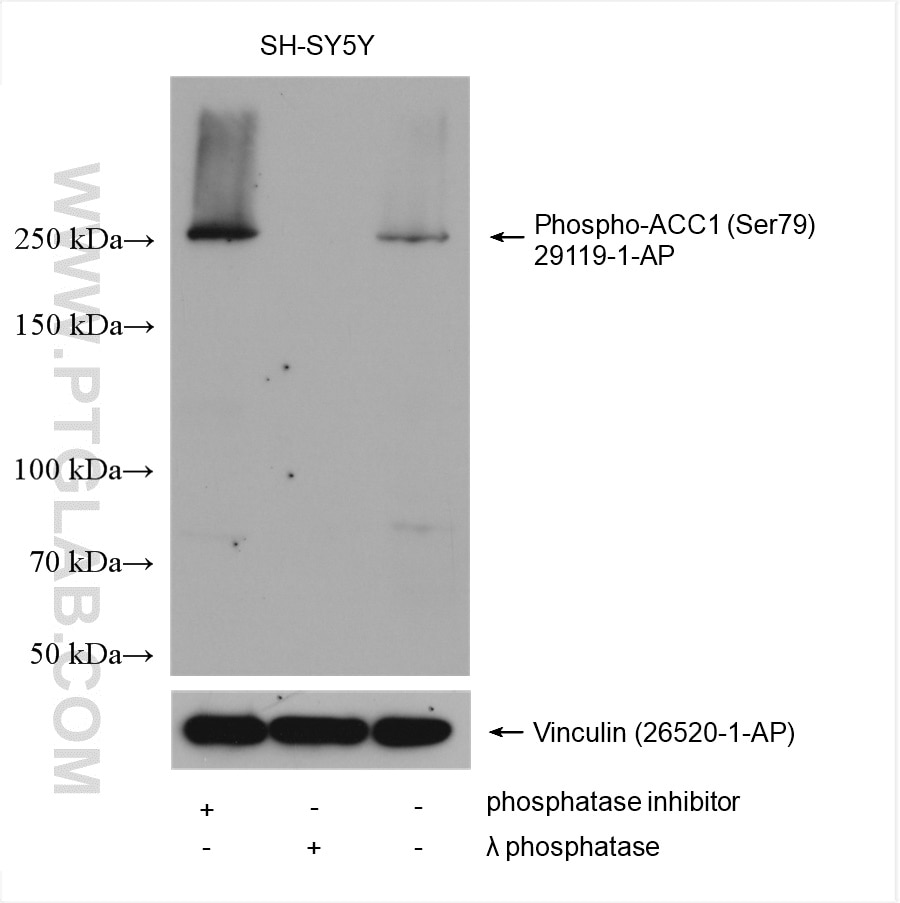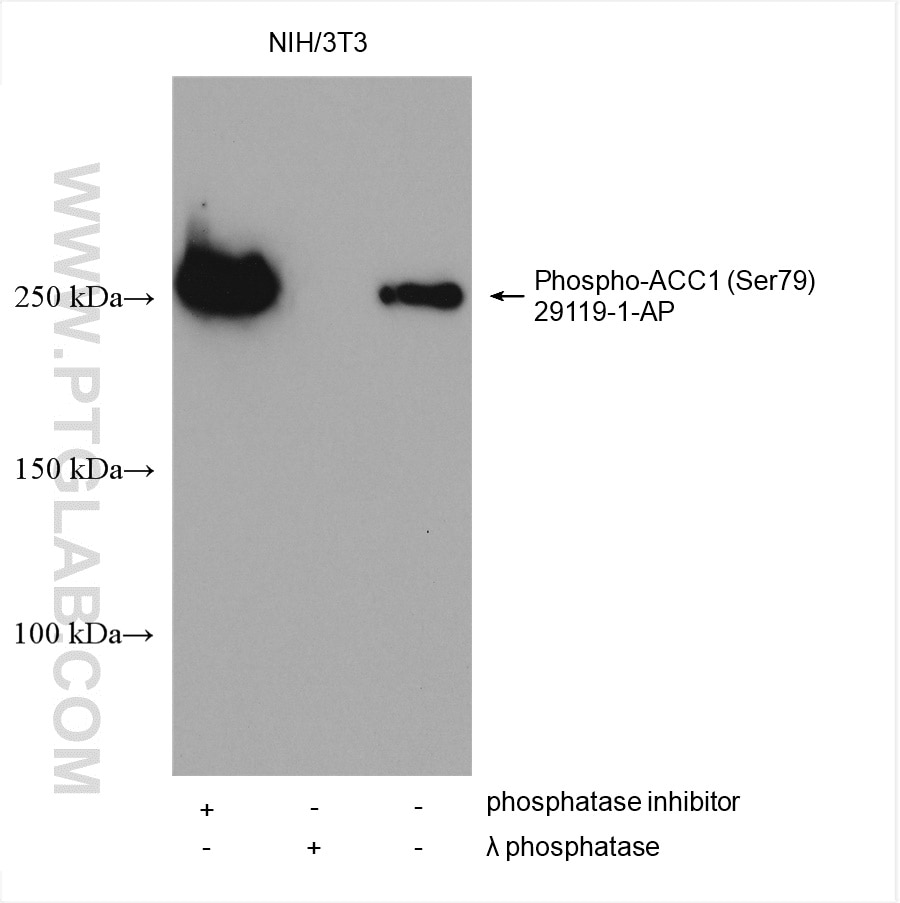Tested Applications
| Positive WB detected in | λ phosphatase treated SH-SY5Y cells, λ phosphatase treated NIH/3T3 cells |
Recommended dilution
| Application | Dilution |
|---|---|
| Western Blot (WB) | WB : 1:500-1:2000 |
| It is recommended that this reagent should be titrated in each testing system to obtain optimal results. | |
| Sample-dependent, Check data in validation data gallery. | |
Published Applications
| WB | See 27 publications below |
| IHC | See 2 publications below |
Product Information
29119-1-AP targets Phospho-ACC1 (Ser79) in WB, IHC, ELISA applications and shows reactivity with Human, mouse, rat samples.
| Tested Reactivity | Human, mouse, rat |
| Cited Reactivity | human, mouse, rat |
| Host / Isotype | Rabbit / IgG |
| Class | Polyclonal |
| Type | Antibody |
| Immunogen |
Peptide Predict reactive species |
| Full Name | acetyl-Coenzyme A carboxylase alpha |
| Calculated Molecular Weight | 2383 aa, 275 kDa |
| Observed Molecular Weight | 250 kDa |
| GenBank Accession Number | BC137287 |
| Gene Symbol | Acetyl-CoA Carboxylase 1 |
| Gene ID (NCBI) | 31 |
| RRID | AB_2918238 |
| Conjugate | Unconjugated |
| Form | Liquid |
| Purification Method | Antigen affinity purification |
| UNIPROT ID | Q13085 |
| Storage Buffer | PBS with 0.02% sodium azide and 50% glycerol, pH 7.3. |
| Storage Conditions | Store at -20°C. Stable for one year after shipment. Aliquoting is unnecessary for -20oC storage. 20ul sizes contain 0.1% BSA. |
Background Information
ACC1 represents a key enzyme, as it is highly regulated by phosphorylation and allosteric regulation, providing a rapid adaptation to new micro-environmental conditions. AMPK phosphorylates acetyl CoA carboxylase (ACC), a rate-controlling step in the conversion of acetyl-CoA to malonyl CoA. This phosphorylation inhibits the activity of ACC, which results in decreased malonyl CoA levels. Additionally, two isoforms of ACC encoded by two different genes in mammalian cells have been described, ACC1 and ACC2. ACC1 is highly enriched in lipogenic tissues (liver and adipose), while ACC2 is mainly expressed in oxidative tissues (heart, skeletal muscle and liver). (PMID: 29056512, PMID: 16054041, PMID: 30816537)
Protocols
| Product Specific Protocols | |
|---|---|
| WB protocol for Phospho-ACC1 (Ser79) antibody 29119-1-AP | Download protocol |
| Standard Protocols | |
|---|---|
| Click here to view our Standard Protocols |
Publications
| Species | Application | Title |
|---|---|---|
Signal Transduct Target Ther The AKAP12-PKA axis regulates lipid homeostasis during alcohol-associated liver disease | ||
Autophagy Periplocin suppresses the growth of colorectal cancer cells by triggering LGALS3 (galectin 3)-mediated lysophagy | ||
Free Radic Biol Med The opposite role of lactate dehydrogenase a (LDHA) in cervical cancer under energy stress conditions | ||
Mol Med Celastrol improves endothelial function in diet-induced obesity mice via attenuating endoplasmic reticulum stress through the activation of AMPK pathway | ||
J Ethnopharmacol Ferulic acid from Angelica sinensis (Oliv.) Diels ameliorates lipid metabolism in alcoholic liver disease via AMPK/ACC and PI3K/AKT pathways | ||
Food Funct Hawk tea prevents high-fat diet-induced obesity in mice by activating the AMPK/ACC/SREBP1c signaling pathways and regulating the gut microbiota. |






